Food webs/food chains -> lakes
Lakes: A Fourth Grade Science Guide
What is a Lake?
A lake is a large body of water that is surrounded by land. It is typically larger and deeper than a pond. Lakes can be found all over the world and vary in size and shape. They are formed by a variety of geological processes, such as glacial activity, volcanic activity, and tectonic movements.
Formation of Lakes
Lakes can be formed through several processes:
- Glacial activity: Lakes can be formed by melting glaciers, which leave depressions in the land that fill with water.
- Volcanic activity: Some lakes are formed in volcanic craters or calderas.
- Tectonic movements: Lakes can form in tectonic basins created by the shifting of the Earth's crust.
Ecology of Lakes
Lakes support a diverse range of plant and animal life. They can be home to fish, birds, amphibians, and various types of vegetation. The health of a lake's ecosystem depends on factors such as water quality, nutrient levels, and the presence of invasive species.
Human Uses of Lakes
Lakes are important for human activities such as fishing, boating, and recreation. They also serve as sources of drinking water, irrigation for agriculture, and power generation through hydroelectric dams.
Study Guide
Here are some key points to remember about lakes:
- Definition: A lake is a large body of water surrounded by land.
- Formation: Lakes can be formed by glacial activity, volcanic activity, and tectonic movements.
- Ecology: Lakes support diverse plant and animal life and are influenced by water quality and nutrient levels.
- Human Uses: Lakes are used for fishing, boating, recreation, drinking water, and power generation.
Happy studying!
[Lakes] Related Worksheets and Study Guides:
.◂Science Worksheets and Study Guides Fourth Grade. Food webs/food chains

 Activity Lesson
Activity Lesson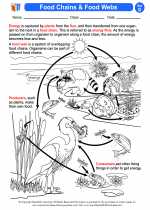
 Worksheet/Answer key
Worksheet/Answer key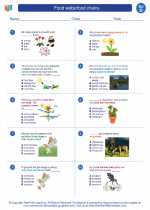
 Worksheet/Answer key
Worksheet/Answer key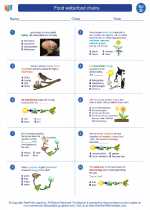
 Worksheet/Answer key
Worksheet/Answer key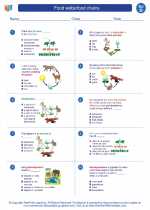
 Worksheet/Answer key
Worksheet/Answer key
 Vocabulary/Answer key
Vocabulary/Answer key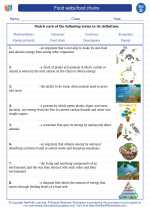
 Vocabulary/Answer key
Vocabulary/Answer key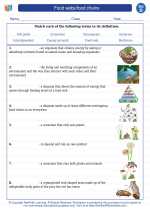
 Vocabulary/Answer key
Vocabulary/Answer key
